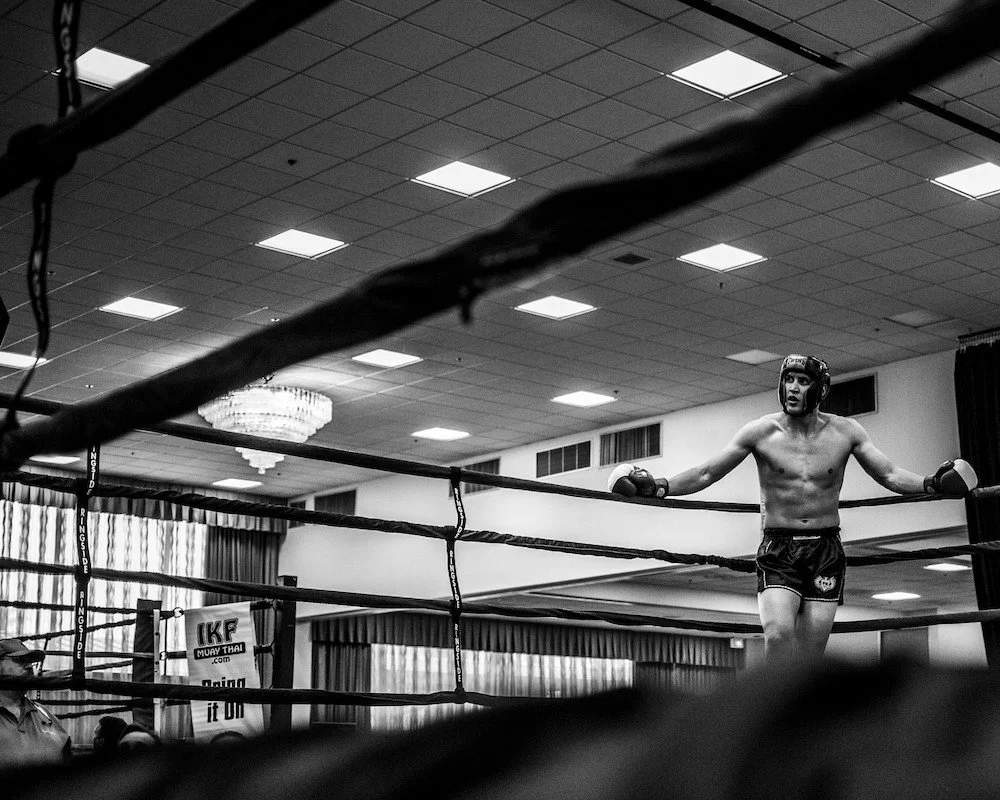Don’t collaborate in your own defeat
Photo by Wade Austin Ellis on Unsplash
Recently, one of my students sent me a transcript of a speech by John W. Gardner, who was, among many things, the former Secretary of Health, Education, and Welfare under President Lyndon B. Johnson. My student and I have been chatting over the past year about their experiences changing careers, and the mindset shifts that are needed to, once again, try new things, to fail, and to ultimately learn, and they thought that this speech resonated with some of those conversations. In reading this transcript, there was a part that particularly stuck out for me:
Everyone fails. When Joe Louis was world heavyweight boxing champion, he said, “Everyone has to figure to get beat some time.” The question isn’t did you fail, but did you pick yourself up and move ahead. And there is one other little question: “Did you collaborate in your own defeat?” A lot of people do. Learn not to.
As a society, we talk a lot about the first part of this passage—picking yourself up from defeat or failure. And while this is an important and necessary outlook as life isn’t always filled with puppies and rainbows, this sentiment is often used to describe setbacks that are, at least partially, external to your control. For instance, if we stick with the boxing scenario for a moment, your opponent may have studied enough film to know that you drop your right hand when you initiate a left hook, giving an early signal that your face will be without protection that they then exploit for a knockout punch. Now, you are in control of how you set up your left hook, and you can work on that in preparation for your next fight, but you are not, and never have been, in control of your opponent’s preparation. Another example: you are in control of your work ethic and stellar job performance, but you’re not in control of the broader financial markets and corporate management decisions that lead to mass layoffs, and leave you without a job. In each of these cases, it doesn’t matter how you got knocked down (literally or metaphorically), because you probably couldn’t have prevented it in the first place; that’s why in these cases, all that matters is that you get back up and on your feet.
But I don’t think we talk enough—or even at all—about the second part of Gardner’s passage. Did you collaborate in your own defeat? This is where I see people of all ages and career stages—myself included—struggle the most. This is all internal. This is all under our control. And this is what keeps us playing small. And don’t we dream of leading big, full, meaningful lives?
Collaborating in your own defeat can take many forms. It can look like making a quick decision to not apply for a job just because you don’t have all 17 of the desired qualifications that are listed. It can look like not reaching out to a colleague for a networking chat because ‘they’re so busy; they wouldn’t have time’. It can look like reading just a few more papers before you begin writing one of your thesis chapters, even though the entire draft is due to your committee next week. In each of these cases, you are taking opportunities away from yourself: a job offer, some great mentorship or advice, critical feedback that will make your work even better—or even the chance to defend your thesis and graduate.
I hear this notion about collaborating in our own defeat spun in a different way on the Peloton platform as voiced by one of my favourite instructors, Alex Toussaint: Don’t block your blessings. As he states, every day we have a new opportunity to get better, to learn, to achieve our dreams. And there are people out there who see us and believe in us. Why, on earth, would we actively block, or even outright reject, these opportunities and these communities?
There are a number of reasons why we do this. One is often that we don’t believe we’re worthy of success. Another is that we fear being judged by others. A third reason is based in regret and locus of control—if we succeed now, maybe it means we could have succeeded earlier in life, when we had convinced ourselves that success would have been impossible for anyone (i.e., it’s not me, it’s these X, Y, Z other reasons). It is not a trivial task to unpack the narratives we tell ourselves about ourselves. Often it requires therapy, or at least deep introspection and a few self-help books to understand why those thought patterns are there in the first place. And all of this can take quite a bit of time.
But the goal for you now is to recognize in the moment when you are collaborating in your own defeat and to chart a new course for yourself. Recognizing when you’re standing in your own way isn’t about blame; it’s about reclaiming agency over your own life. And you don’t have to have all the rest of it—feelings of unworthiness, fear, or regret—sorted out in order to take the next step. Instead, start by telling yourself that you will no longer block your blessings. Decide that you are going to do the hard, scary things even though they may not work out. Or maybe it does work out. Either way, you learn more, you gain confidence, and you start rewriting your own narrative.
What could your life look like if you stopped collaborating in your own defeat? Pick one small thing today that feels hard or scary, and take action. And if you’re ready to build momentum toward your bigger goals, let’s talk—book a free discovery call.
Next week: Breaking up with imposter syndrome

